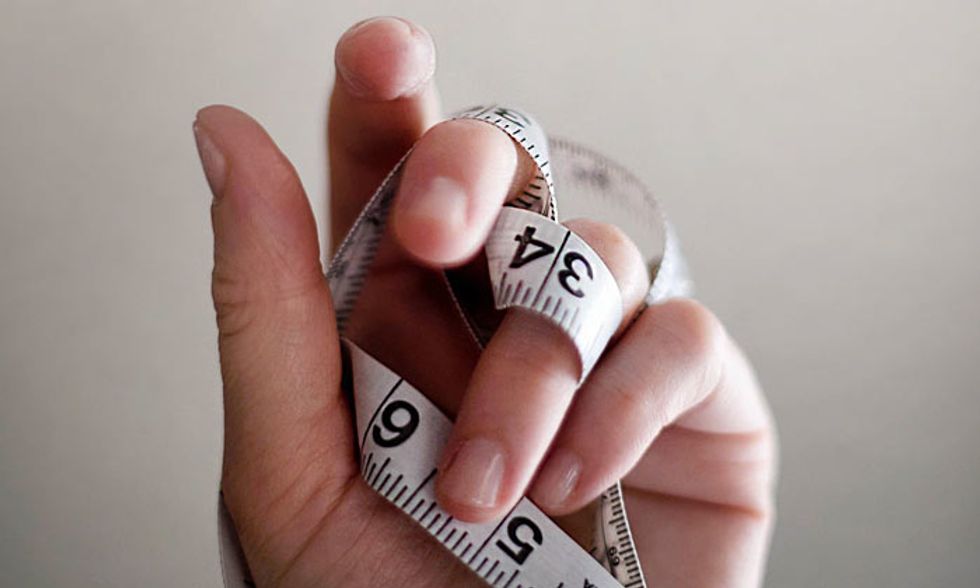I came across a startling statistic in an article on a popular health site that claimed nearly 90% of diets fail. Although the article went viral, that failure rate turned out to be a bit exaggerated. Still, we're talking about a failure rate of about 70%, so something is wrong.
So, why are most diets failing? Well, think of weight gain as merely a symptom of a larger issue. Most people focus only on the numbers, and don't realize that their entire lifestyle might have to change to reach and maintain a healthy weight.
#1: Adjust your schedule
Before signing up for an expensive diet like Nutrisystem (cost) or Jenny Craig, (whoa, pricey!) do what you can to flip those odds from failure to success. How? Here are some free ways to prepare yourself for sustainable weight loss, and a healthier lifestyle.
Starting a new workout routine means freeing up a few hours each week from your already-packed schedule. You may think the real work lies in doing the actual workout when 99% of it is done in rearranging meetings and routines to have the time to workout. That's why a lot of people are willing to pay so much for meal delivery diets, as their #1 priority is convenience.
#2: Adjust your sleep
Sleep is so vital in weight loss and overall health as it affects leptin, ghrelin, cortisol, and growth hormone – among other things. I am a night owl and that used to think it was okay to sleep at 1am and wake up at 6:30am. I could only maintain that until I felt like I had completely run myself into the ground, and my hormone levels have yet to recover. It's digging a deep hole that is tough to get out of.
#3: Adjust your stress
Eating is a common reaction to stress, so this is a huge reason to manage your stress. The other is cortisol. Cortisol is a hormone that when elevated for a period of time can really interfere with metabolic processes. If you're like me, your metabolic processes are junk to begin with, so anything that would affect that more should be avoided.
Personally, I had a really rough time with work-induced stress for years, and it was one of the reasons I started my own business. While that may sound stressful to some people, it meant the pressure of pleasing or reporting to someone above me and playing office politics was gone. My clients are theoretically my bosses, but I'm doing work that was collaboratively built and it's an entirely different feeling.
#4: Adjust your shopping
Eating healthier means more meal planning, grocery lists, and reading labels. Add this to one of those time consuming items you now have to fit into your schedule. No more zipping through the grocery store on autopilot grabbing whatever strikes your fancy. It's a tough adjustment for many.
#5: Adjust your family
Reduced dinners out, less fast food for the kids, different dinners with the husband – they're all consequences that they will face because of your commitment to get healthy. It may be rough on them to understand why you need to clean out the pantry, but they'll adjust and all be better for it. Still doesn't make it easy!
#6: Adjust your mind
Unless you adjust your mind to how you got to where you started, you may never reach a place of satisfaction. Identifying root causes and working on rewiring your brain and response mechanisms is incredibly hard. It requires introspection, opening up old wounds, and fighting yourself. Not everyone needs to go to therapy, but many of us do. It's a huge time and monetary investment, and the work is messy for something as seemingly easy as sitting on a chair and talking.
#7: Adjust your body
It's painful to start exercise if you've been sedentary. Heck, it's painful to exercise if you've been away for a couple weeks. It's not a comfortable feeling. You have to work to figure out what to do, and how to do it. You learn certain things bore you and others excite you.
You might get injured and end up having to adjust your body in an entirely different way. If you aren't getting the results you think you should be, you might need to get lots of blood work and become an advocate for you as the patient seeking answers. So while you may think that going to the gym is part of "visible work," there are so many other things that go into it before it is a consistent, enjoyable routine.
I'm not saying all of this to make you think it's impossible to lose weight or get healthy. It's worth it. I'm taking time to meal plan and figure out what will work for me in the long run. I'm testing new eating guidelines to see if they make me feel better, worse, or the same.
My exercise has been limited with my ankle so I've had to adjust my workouts to include swimming again, which means even more time to get ready and then shower afterwards. It requires feeling uncomfortable for the 20 steps from the pool locker room to the water where I fret about having to share a swim lane. It's a lot of work, but it's what needs to be done to make things happen.
The invisible work is where the difference will be made. Do the invisible work.






















